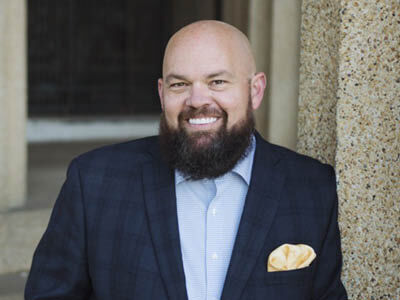In Black columnist's firing, advocates fear decreasing diversity, vital perspectives in news media
News > National News

Audio By Carbonatix
12:08 AM on Thursday, October 2
By JAYLEN GREEN
As the founding global opinion editor for The Washington Post, Karen Attiah believed her job had always been about assessing world affairs in a way that elevated a diverse range of perspectives.
“I’m not just a columnist,” she recently said.
But last week, the Post’s only Black female opinion writer revealed she had been fired over posts on Bluesky about violent white men in the wake of Charlie Kirk’s killing that the newspaper said violated its social media policy. After offering what she called an “honest reflection on the state of violence in America,” her 11 years at the Post came to an abrupt end.
“Being pushed out of the Washington Post for expressing myself — for not even expressing myself, for doing my job as a journalist — is really a deep, sort of cruel 180,” she told The Associated Press.
The firing of Attiah, the last Black full-time member on the Post’s opinion desk, worries media professionals and advocacy organizations about the wider implications for journalistic freedom and diversity. The potential fallout, they say, could make journalists of color hesitant to express opinions or address injustices, effectively muting those perspectives.
The National Association of Black Journalists, the nation's largest professional advocacy organization for journalists of color, said Tuesday that Attiah's firing had “raised an alarm about the erosion of Black voices across the media.”
“The absence of Black journalists doesn’t just harm us — it impoverishes the entire profession," said NABJ President Errin Haines. "When our voices are missing, stories go untold, perspectives go unchallenged, and the truth remains incomplete.”
After a meeting Monday with Washington Post Executive Editor Matt Murray, NABJ leadership said it had assurances that the news outlet is working to retain diversity among its staff and to expand access to careers for journalists of color.
A Washington Post spokesperson declined the AP’s request to comment on Attiah’s firing. Attiah has announced plans to dispute the Post’s decision in court.
“It’s more sort of about this chilling precedent that it sets for journalists, for educators, for researchers, for anyone who writes on gender and violence. If they think it’s going to stop with me just because I was a Black woman saying this, it never stops with just Black people,” Attiah said.
Attiah’s firing comes among dozens of others across various professions stemming from comments about Kirk's assassination, igniting a debate over First Amendment rights as President Donald Trump has vowed retribution for remarks he considers disparaging.
"The removal of vital voices like Karen Attiah’s — whose reporting helps our communities understand the political context we’re in — is a dangerous and deliberate act of erasure by media owners,” the Media 2070 Project, a nonpartisan organization advocating for a free press and exchange of ideas, said in a statement.
The president of the Washington Association of Black Journalists, of which Attiah is a member, said the firing is a “chilling moment in news media,” particularly for Black journalists, whose voices have historically been targeted.
“This firing sends a message to other Black journalists and writers that our perspectives aren’t valued unless we align with the status quo,” WABJ President Philip Lewis told the AP.
For many media diversity advocates, Attiah’s firing reflects a history of excluding Black women and their perspectives from white owned and run news outlets — like journalist Ida B. Wells-Barnett, whose reporting on lynchings of Black Americans in the 1890s was dismissed and attacked by mainstream papers.
“Often, it’s the people who get left out of the frame and left out of the division of the nation that are the ones saying, ‘Actually, we can think about this better,’” said Khadijah Costley White, associate professor of journalism and media studies at Rutgers University, New Brunswick, who specializes in writing and commentary on race, social movements, news and politics.
“When you disappear people from spaces, you lose those valuable discussions that help our nation really process who we are and what kind of country we want to be,” she said.
Eric Deggans, the Knight Chair in Journalism and Media Ethics at Washington and Lee University, said the Post’s loss of Attiah is glaring at a time when “there’s a lot of other public figures out there criticizing Black women unfairly.”
“I don’t understand why the most extreme punishment is the first punishment,” said Deggans, who is also a critic at large for NPR. “I don’t understand why there’s not an attempt to sort of talk with the employee and let them know what they did wrong.”
According to the Pew Research Center’s most recent survey of the news media, just 6% of all reporting journalists were Black in 2022, even though 12% of the U.S. total population is Black. By comparison, 76% of all reporting journalists were white, though the white population makes up 61% of the U.S. total.
Diversity can help encourage public debate, according to University of Michigan journalism professor Daniel K. Brown, an analyst of media representation and narrative change. Opinion pieces often attract more social engagement because they’re clear, singular viewpoints that help readers understand what is happening and spark discussion, he said.
“Probably one of the biggest consequences of not having lots of diversity in this space — or more diversity in the space — is its potential to also just misinform the public, which is already a little confused about what opinion writing is and what it’s supposed to do in the first place,” Brown said.
But a columnist’s personal social media presence and institutional role can also create tensions or jeopardize an outlet’s credibility and trust with the public, said Daniel Kreiss, a professor of political communication at the University of North Carolina at Chapel Hill. He suggests that being transparent about one’s personal views allows the public to understand the lens through which the opinion columnist is writing.
“Public opinion is not a static thing,” Kreiss said. “It changes when people bring arguments and ideas into the public sphere — whether by persuading others, winning supporters, or simply prompting people to consider something they’ve never thought about before.”
Attiah said she has been consistent about her views on issues of race and has been making appearances since her firing to share her perspective on the current political climate.
“I hate to be Debbie Dark Cloud, but if you think things are really bad, they can and they will, and they’re trying to make it worse,” Attiah said during a panel on Black women in media at the Congressional Black Caucus Foundation’s annual conference last week.
But Attiah also struck a note of optimism about the potential the moment brings for Black thinkers, leaders and organizers.
“I think this is also a time for profound creativity, being like water rising and like water moving around the cracks and actually, over time, eroding and undoing,” she said.
___
AP writer Matt Brown in Washington, D.C., contributed to this report.
___
The Associated Press receives financial support from the Sony Global Social Justice Fund to expand certain coverage areas. The AP is solely responsible for all content. Find the AP’s standards for working with philanthropies, a list of supporters and funded coverage areas at AP.org.









